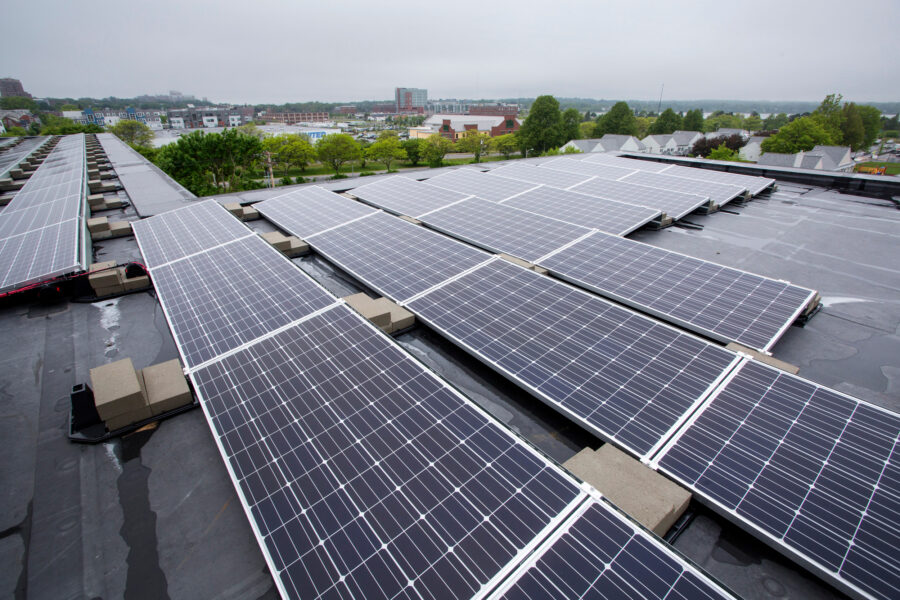Political polarization on climate change has become so stark this election cycle that researchers say the gulf between Republicans and Democrats is wider than they have seen in more than 20 years of polling. The polarization has an equally startling financial corollary: an overwhelming 91 percent of fossil fuel industry campaign donations now flow to Republican candidates and 9 percent to Democrats.
As recently as 2000, when George W. Bush faced Al Gore for the presidency, the pot of fossil fuel spending was split almost evenly, with 60 percent going to Republicans, 40 percent to Democrats.
The deepening divide underscores how much of U.S. climate policy is riding on the November election. Donald Trump has promised to pull the country out of the Paris accord and Republican majorities in Congress are working to block environmental regulations. Hillary Clinton has vowed to support the global agreement to reduce carbon emissions and build on President Obama’s climate initiatives.
An InsideClimate News analysis of data from the Center for Responsive Politics shows that from the beginning of this election cycle in 2015 through the first six months of this year, fossil fuel industry political action committees and employees donated $37.2 million to Republicans running for federal office. In contrast, industry giving to Democrats totaled just $3.8 million.
The trend dovetails with new research that shows the partisan gap has increased in U.S. citizens’ views on climate change science and the impacts of a warming planet. That research is published in the latest issue of the journal Environment.

Riley Dunlap, sociologist at Oklahoma State University who led the new research, was not surprised by the parallel trend in political donations from those with an interest in fending off climate policy.
“What has happened since 2008 is that the Democrats have become very clearly the party identified with taking climate change seriously and promising to do something, while the Republicans have become intransigent,” he said.
What is difficult to answer, however, is which trend is driving the other.
“Are the contributions rewarding the voting? Or are the political votes driving the Republican contributions?” asked Robert Brulle, a sociologist at Philadelphia’s Drexel University who studies the fossil fuel money’s influence on communication about climate change. “It probably works both ways. ‘This guy’s always voting with us, he’s one of our friends, let’s give him more money.’ And he becomes a better friend. It’s kind of a reciprocal relationship.”
Republicans became much better friends to those who oppose environmental action in Congress since 1970, according to Dunlap’s analysis of the League of Conservation Voters’ annual scorecards. On a scale where 100 signifies a “perfect” environmental voting record, the GOP average in the 1970s hovered between 30 and 40 percent, while the Democrats stayed mostly between 50 and 60 percent. Today, the GOP average has dropped to the single digits, while the Democrats’ average is about 90 percent.

Dunlap also looked at The Gallup Organization‘s regular opinion polling on global warming to track the shift in political polarization over time. The gap between Republicans and Democrats on the question of whether changes in the Earth’s temperature are due to human activities grew from 17 percentage points in 2001 to 32 points in 2008 to 41 points in polling this year: Eighty-two percent of Democrats believe in human-caused climate change versus 47 percent of Republicans.
Dunlap said the increasing gap between the parties reflects that climate action opposition has become a “core identity issue” for Republicans, on a par with opposition to abortion or taxes. Anti-regulatory ideology may have made the party “fertile ground” for hardened opposition to climate action, he said.
But Dunlap said the GOP leadership helped encourage the divide, especially since 2008. For example, he said when Senate Majority Leader Mitch McConnell, (R-Ky), urged states last year to defy the Obama administration’s Clean Power Plan, it sent a signal that the party was aligned with opponents of the regulations, including the fossil fuel industry. Dunlap also said it sent an important cue to rank-and-file Republicans to put pressure on Republicans in Congress who might be inclined to favor action. That was the pressure that helped oust Rep. Bob Inglis (R-S.C.) in 2010, when he supported a price on carbon and saw his donations dry up and was unseated by a Tea Party challenger.
“They face both top-down and bottom-up pressure,” said Dunlap.
Dunlap’s research shows it will be difficult to reverse the trend. The partisan divide on climate change is just as wide regardless of education level—indicating that efforts to reach doubters through education and better communication of science may be fruitless. Dunlap said he believes only a fundamental shake-up in the GOP is likely to dislodge the deep-seated views. It’s just one reason, he says, that this election—and what happens to the Republican party following it—may be crucial for the future of action on climate change.
Lisa Song and Nicholas Kusnetz contributed to this report.











